You may know that Texas Holdem and Omaha are the two most popular varieties of modern poker. However, the card game has many more interesting formats that were popular some time ago. These formats are still played around the world, online and offline, but games are harder to come by.
One of these games is Seven Card Stud. If you’ve played Holdem and Omaha, learning this format won’t take very long. We’ll give you a simple explanation of how to play Seven Card Stud, then some strategy tips to increase your win rate.
What is Seven Card Stud?
Seven Card Stud (same meaning as 7-Card Stud) is a classic poker game that differs from the popular Texas Holdem and Omaha variants. In Stud, players are usually limited by the size of the blinds and cannot go all-in. Each player is dealt 7 cards – 4 face up and 3 face down. The best 5-card hand wins the pot.
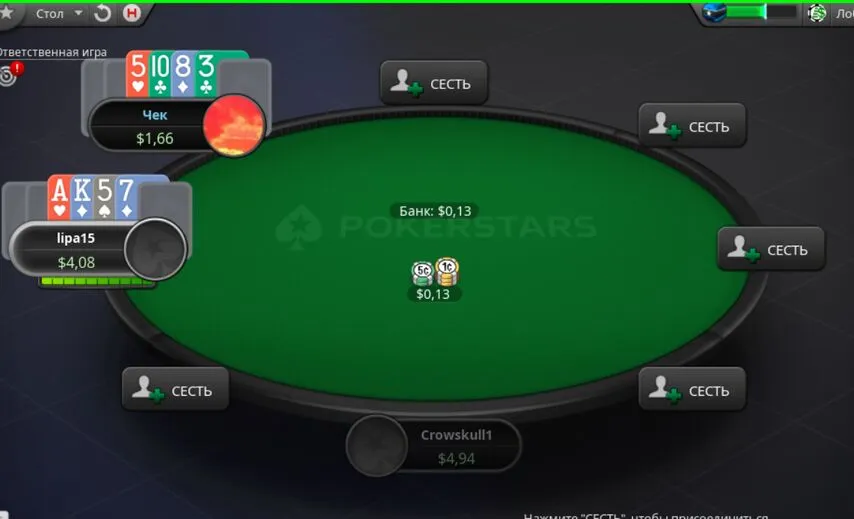
Seven Card Stud Rules
Unlike Holdem or Omaha, there are no community cards in Stud. Players must remember their opponents' upcards to calculate the odds of making their hand.
So, what is a Seven Card Stud round like? Using a game on PokerStars, we’ll show you how:
Ante
All players post a mandatory bet called the "ante" before the hand begins, usually 10% of the big blind. The dealer will not start the hand until everyone antes.
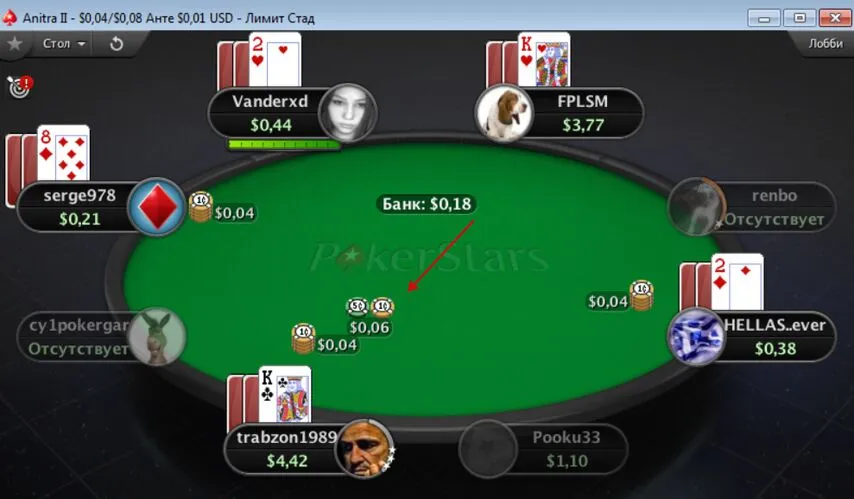
3rd Street
Each player starts with 3 cards – 2 down and 1 up. The lowest upcard makes the "bring-in" bet, either small or full. Suits break ties, ranking from spades (highest) to clubs (lowest). Action proceeds clockwise as normal.
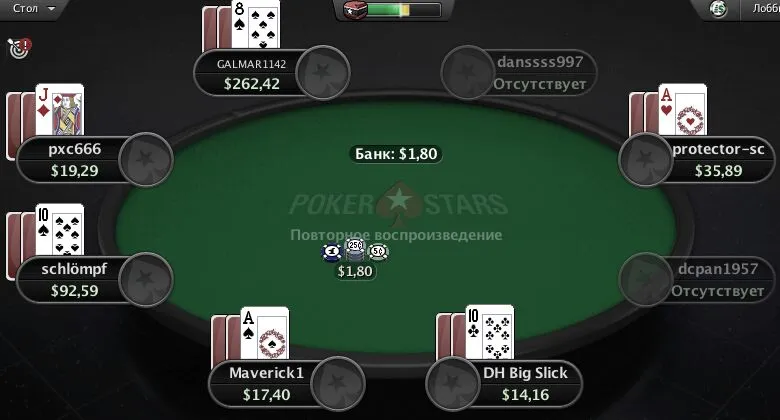
4th Street
Players receive another face up card. The highest hand showing starts the betting with a small bet or check. In a $10/$20 game, the small bet is $10.
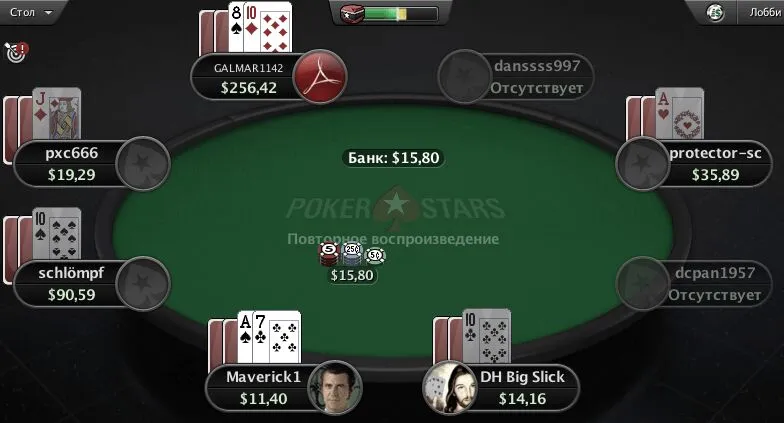
5th Street
Another face up card is dealt. The strongest hand showing bets first, but now all bets and raises are in big bet increments ($20 in a $10/$20 game).
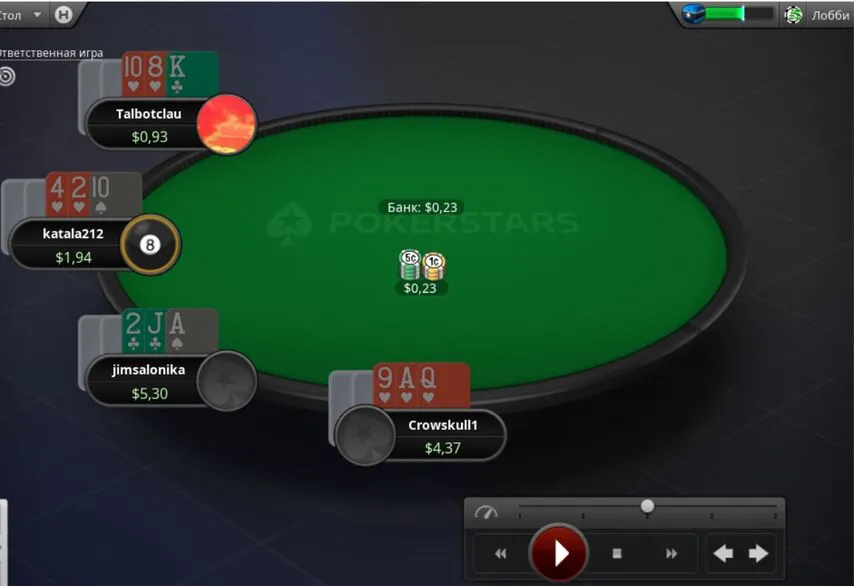
6th Street
Players get one more upcard and betting continues as on 5th street, with the highest hand acting first.
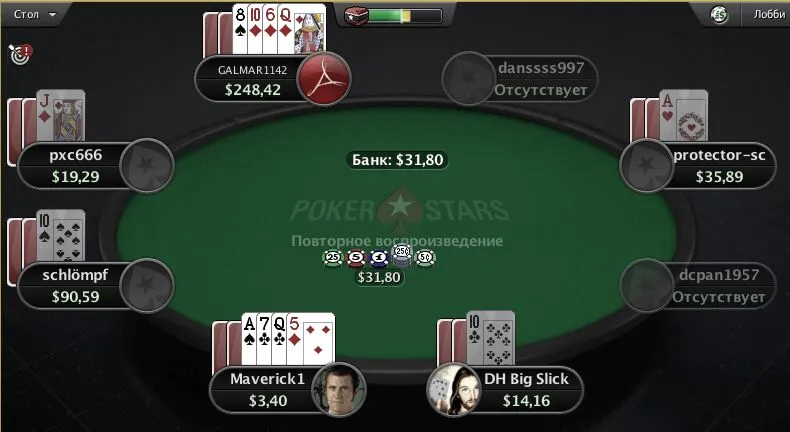
7th Street (River)
The final card is dealt facedown. The last raiser on 6th street bets first. If no one raised, the first player left of the dealer starts.
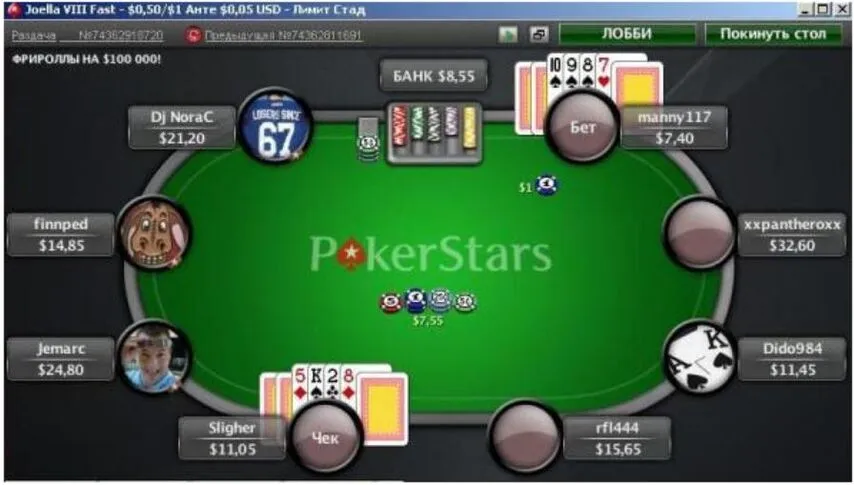
Showdown
If multiple players remain after the river, a showdown occurs (the same rules as other poker formats). The last aggressor shows first, then clockwise around the table. The best 5-card hand scoops the pot. Identical hands split the pot, with no suit rankings used.
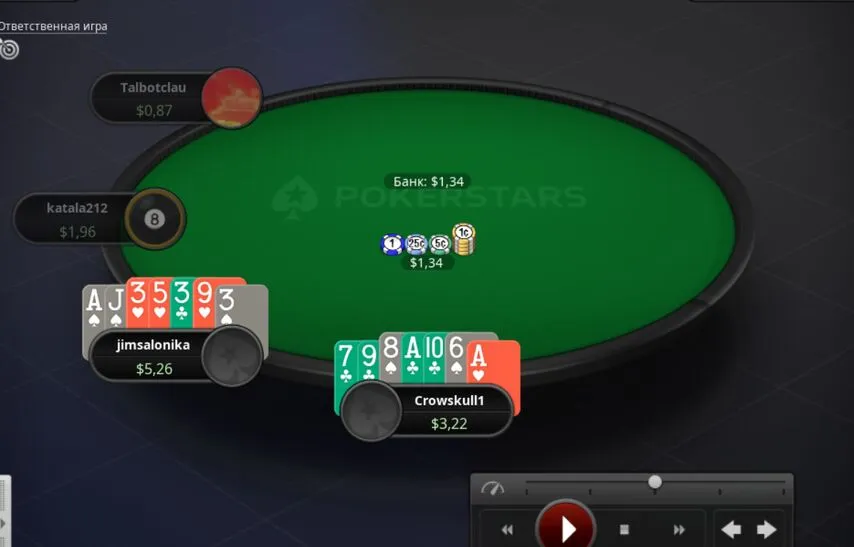
Other Seven Card Stud Rules to Know
- Suits only matter for the bring-in with tied low cards on 3rd street.
- If the bring-in player is all-in, the action passes left to the next player.
- Open pairs on 4th street let a player bet the big bet amount.
- Stud is usually 8-handed, as the 52-card deck runs out with more players.
- If the deck runs out on 7th street, a single community card is dealt.
The Actions in Seven Card Stud
In Stud, poker players have only one action that differs from the possibilities in No-Limit Hold'em or Omaha – the bring-in. Otherwise, the participants in the hand have a classic set of options:
- Pass (fold). Refusing to participate further in the hand, meaning your hand is dead.
- Check. Passing the move to the next player
- Bet (stake). Making a bet (small or large)
- Call: Matching a bet or raise that was made before.
- Raise. Raise the bet.
The options available at a given moment in the hand depend on the opponent's actions and the situation at the table. Even folding is not a constant option. For example, in the bring-in position, this is not possible.
Seven Card Stud Variants
The two main versions of Seven Card Stud are:
1. Stud Hi-Lo (Stud/8): Half the pot goes to the best high and half to the best "low" 8-or-better hand. The nut low is 2-3-4-5-7.
2. Razz: The objective is to make the worst traditional poker hand. Flushes and straights don't count against you. The nuts is 5-4-3-2-A.

Seven Card Stud Strategy
Pay close attention to your opponents' upcards to narrow down what hands they could have. For example, if you see three of a suit on the board, flush draws are less likely.
- Be selective with your starting hands. In general, you want three cards to a straight or flush, or a big pair. Avoid playing weak hands like a small pair with little chance to improve.
- Position is crucial in Stud. It's a big advantage to act last, so play more hands when you're seated in later positions. You can play looser on 3rd street when you'll have the last action.
- Aggression is important. This is especially true if you think you have the best hand. Building the pot in early streets with bets and raises makes it more likely your opponents will fold later if they don't improve.
- Bluffing can be effective, sometimes. It is harder to pull off than in flop games since your opponent has more information about your hand. Semi-bluffing with draws is usually a better play.
- Adapt to the circumstances. Adjust your strategy based on the betting limits and your opponents' playing styles. You need a stronger hand to continue in big bet games compared to lower limits.
Unfortunately, this is a quickly fading format online. It is nearly impossible to find Seven Card Stud poker online free or for real money. That being said, free Seven Card Stud apps are available online, focused more on fun.


















